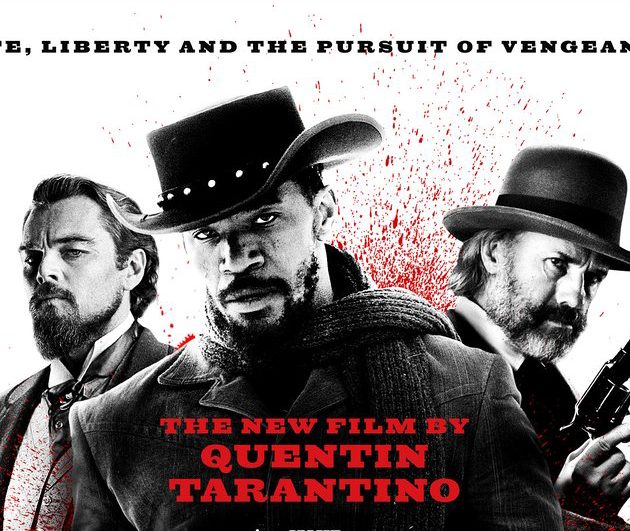
Django Unchained Screenplay Review
Here we have a strange specimen. Samuel L. Jackson has long teased that somewhere there exists a five-hour cut of Django Unchained—which is an impressive length of time. That means that there is roughly two hours of material cut from the theatrical release and nowhere is that more apparent then when you read the script.
There is so much cut content that you could take it out and make an entire film from it. The most apparent change between the script and the movie is that the original story followed Broomhilda Von Shaft and Django from both of their perspectives. So while Dr. King Shultz and Django are out searching for her we see Broomhilda pass into the hands of Scotty Harmony—who was supposed to be played by Jonah Hill. Remember Scotty Harmony? He’s a pivotal character in the script, and is the very reason for Broomhilda ending up in the hands of Calvin Candie but he’s nowhere to be seen in the final film.
In the script he’s described as a chubby young man whose parents buy Broomhilda to marry him, only for him to lose her in a card game to Calvin. So what happened? Why is this huge chunk of the movie missing? A little research showed that Jonah Hill ultimately dropped out, forcing Quentin to replace him with the lithe Sacha Baron Coen. But once again, the actor dropped out to be in the movie, Les Miserables leaving Tarantino once again without an actor for Scotty Harmony. Not wanting to recast him again, the director just decided to trash that whole section of the movie making it a much more Django centric film, and dropping the non-linear nature of his previous work.
That’s just one of many, many cut scenes from the final movie—the script is rife with them. Tons of scenes with Dr King and Django are left by the wayside, and an especially gnarly rape scene in the beginning was cut as well (although we know that this was at least filmed because you can see a piece of it in trailer).
If the Django script shows us anything, it’s that films are amorphous things that change over time. Cuts are made, actors drop out, and the journey isn’t necessarily bringing the script exactly as written but finding its soul and pulling it out. I love this film above all Tarantino flicks, and while I feel the hurt of the absent content, I understand that Quentin needed to desperately condense his spaghetti western masterpiece into a workable two-hour cut…. Although I’d be lying if I said I don’t hope and pray that some day I lay my eyes on that elusive five-hour version.
